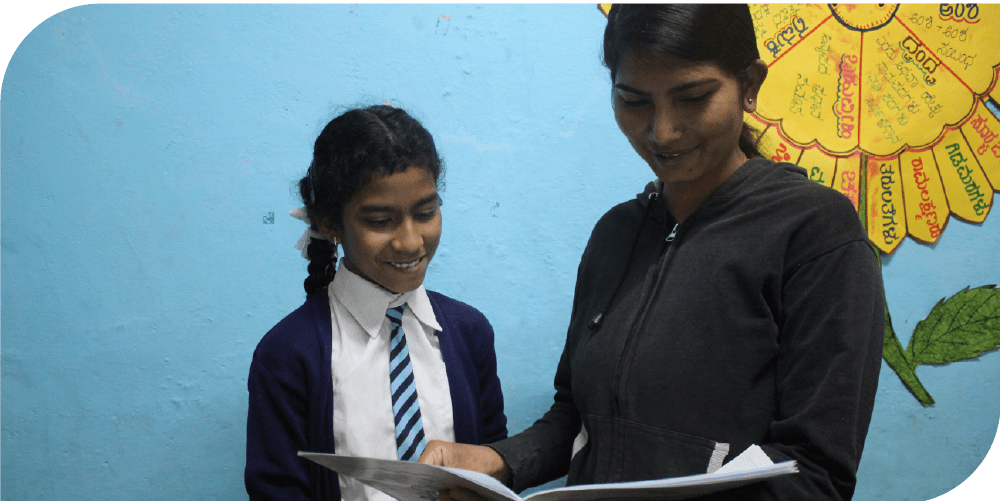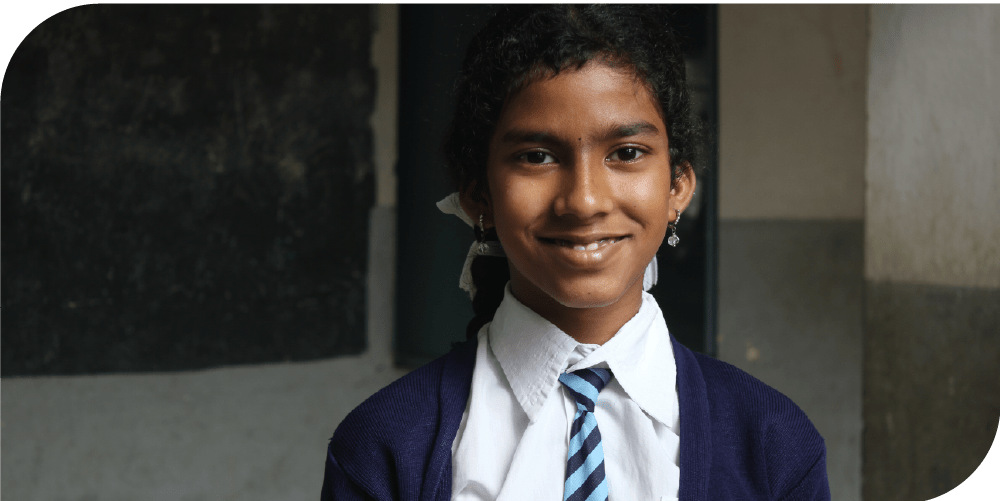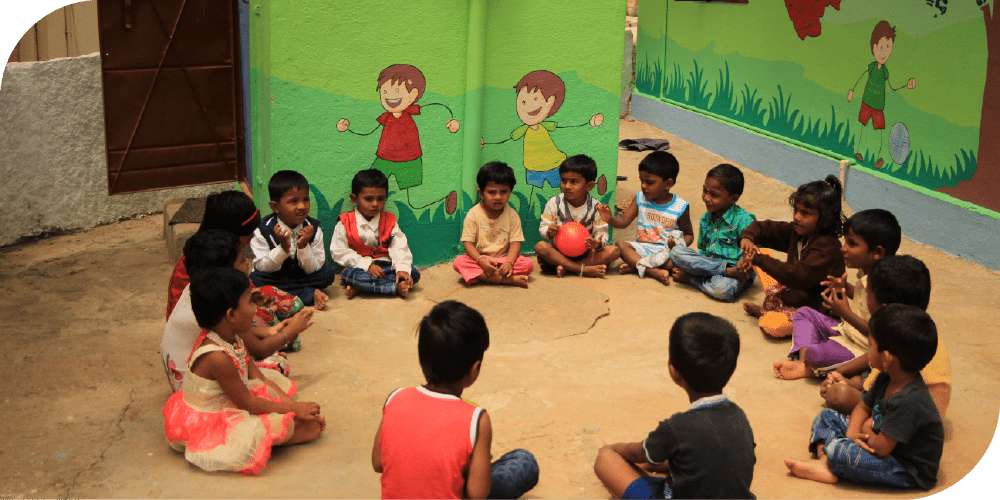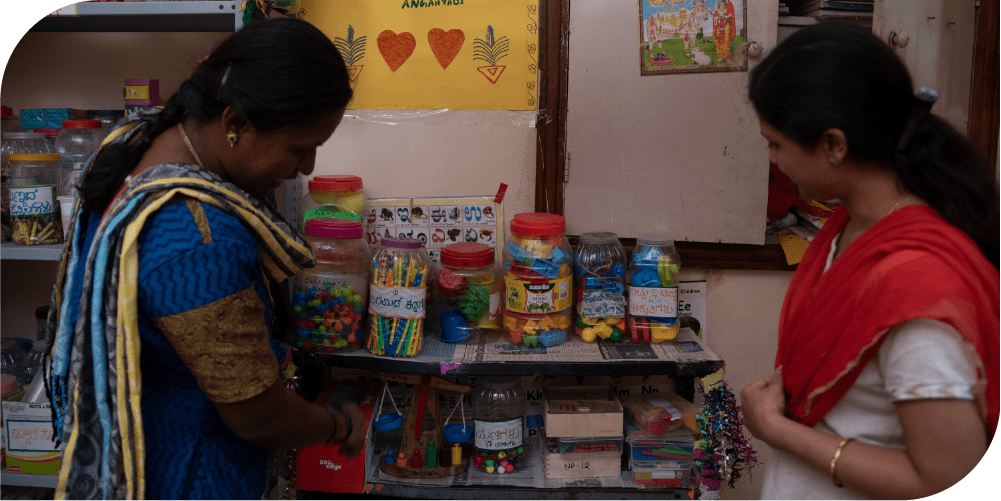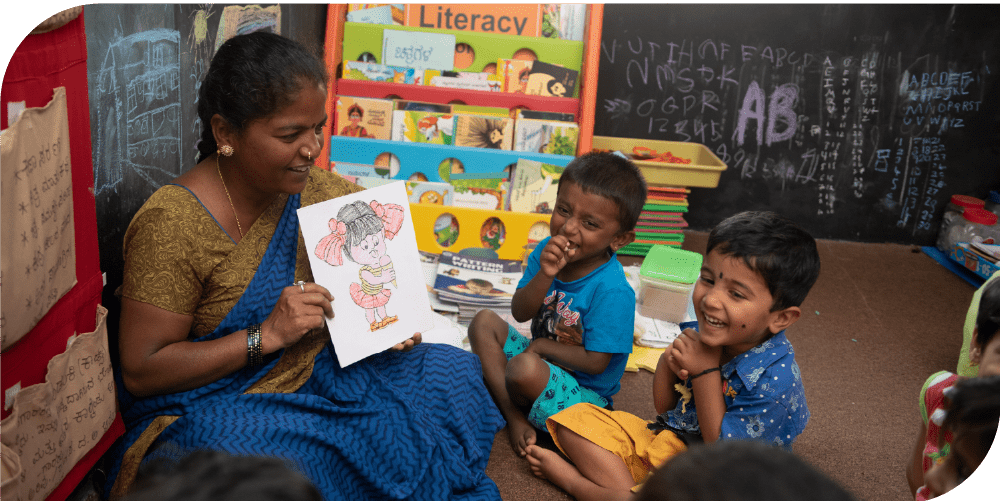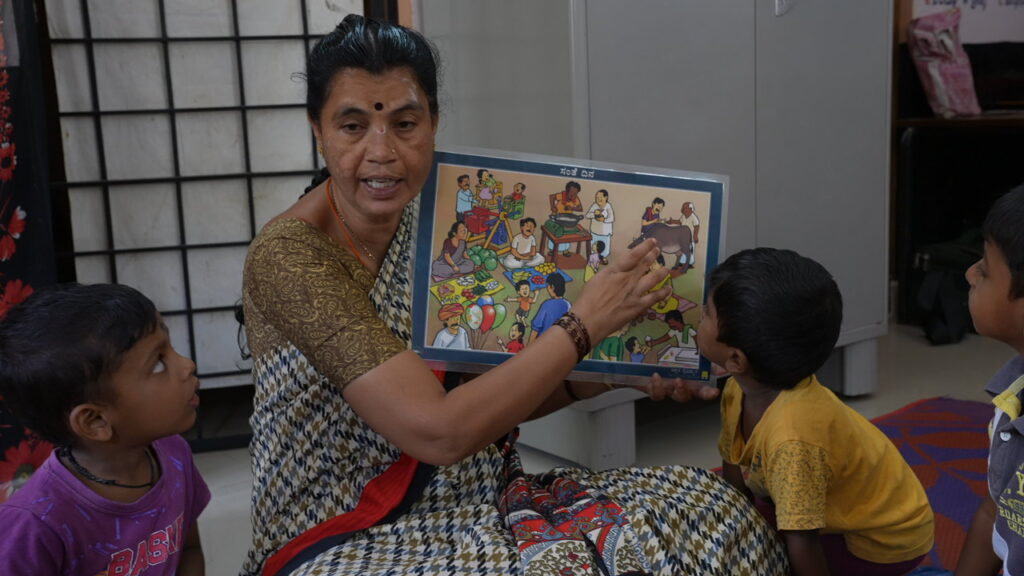
Every child deserves a fair start in life. Research shows that most of a child’s brain development happens in the first 6 years. This makes Early Childhood Education crucial for laying the foundation of a child’s learning, health, and overall success in life. In India, Anganwadis (government-run centers) are the primary institutions that provide basic nutrition, health, and pre-school education services to children under the age of 6 and their mothers. Hence, Anganwadi teachers play an important role in providing care and education to children. However, many of these teachers face challenges such as lack of training, resources, and support, which impact the quality of their services.
To address this issue, Makkala Jagriti has introduced the ECCE program, which promotes the holistic development of children across all developmental domains, with a focus on improving the learning levels and school readiness of children aged 3-6 years. Currently, Makkala Jagriti is working with 85 Anganwadis in both urban and rural districts of Bangalore to improve the quality of services provided to children.
Makkala Jagriti takes a sustainable approach by working with Anganwadi teachers and helpers to improve their facilitation skills through capacity building. Providing necessary support to teachers and helpers improves their effectiveness, and they can carry out their responsibilities more effectively. With better-equipped teachers, more engagement from parents, and improvements in the classroom, the quality of services provided by Anganwadis can be enhanced.
During a focus group discussion with Anganwadi teachers in Rajanakunte, Bangalore, several insights were gathered regarding the benefits of empowering these teachers. One of the primary advantages is that they develop a better understanding of what is needed for the development of children, beyond just teaching basic literacy and numeracy skills. One of the teachers said, “Initially, I thought that our job was only to feed the children, put them to sleep and at the most, teach them ABCs and a few basic nursery rhymes. But, after attending training sessions and online classes as a part of Makkala Jagriti’s ECCE program, I realized that there are so many other aspects that need to be covered for the holistic development of children.” The training has led to significant improvements in the classroom, with teachers now providing more engaging and diversified learning activities.
Another teacher shared, “Earlier, we only used to do rote learning, but now we focus on activities that promote learning through play. I learnt to incorporate songs, rhymes, and storytelling, which not only makes learning fun but also helps with cognitive and language development.” During the discussion, it became apparent that teachers are now more knowledgeable about the different domains of child development and how various activities can foster specific aspects of development. It is evident that this increased awareness is largely attributable to the ECCE program of Makkala Jagriti.
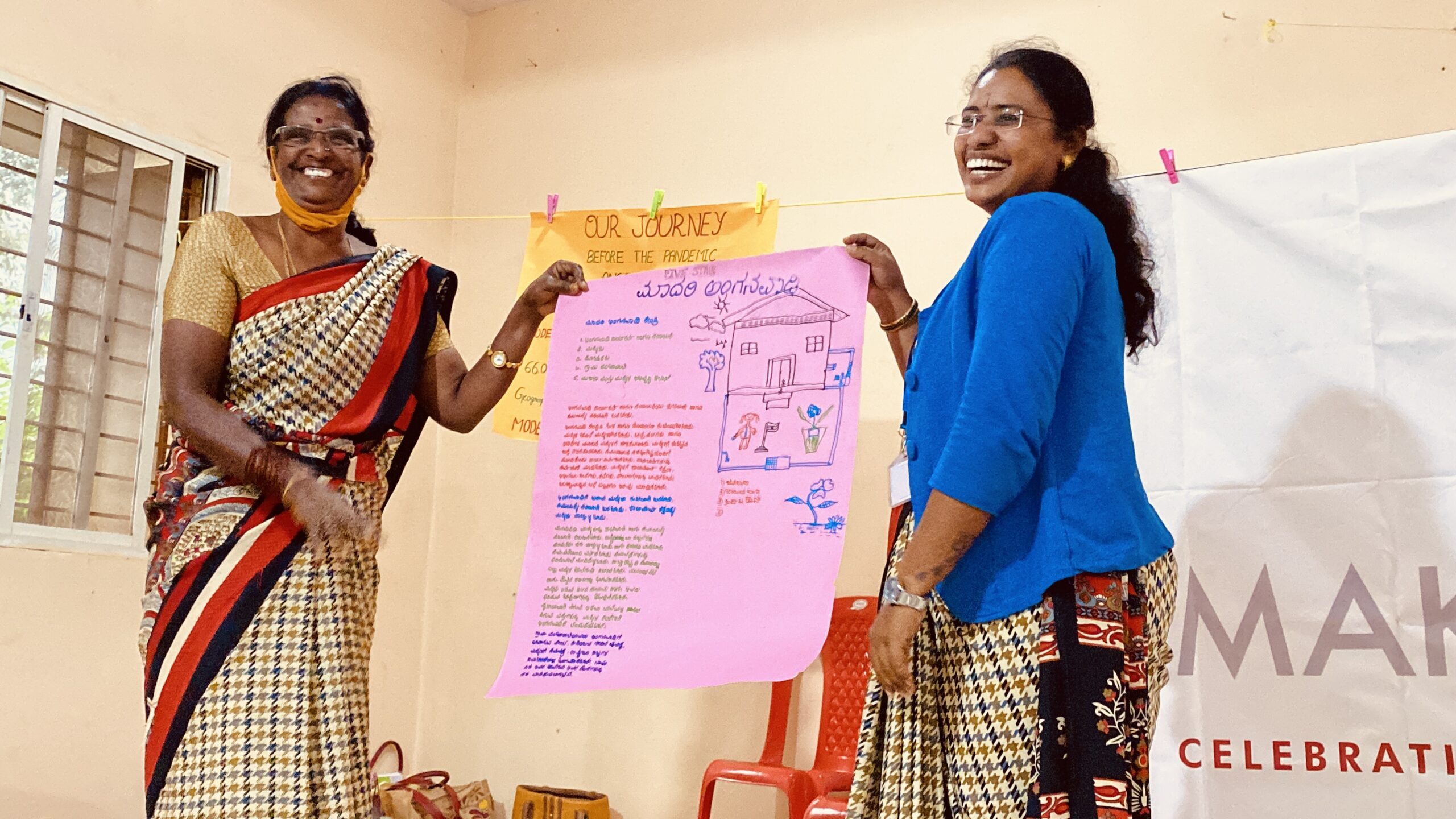
In India, there is a common misconception that Anganwadis only serve as daycare centers and not as places for preschool education. The intervention by Makkala Jagriti aims to change this narrative. A senior teacher shared, “Parents are now aware of the significance of the activity conducted by us and, as a result, they are now more engaged in their child’s learning process. Earlier they used to leave the child and walk away, however now they spend some time observing what is happening in the class.”
The empowerment of Anganwadi teachers has also resulted in significant changes in the centers. The use of low-cost materials and innovative teaching techniques has been helpful in attracting parents. One teacher shared, “Earlier, parents were skeptical about sending their children to the center. They didn’t believe that their children would learn anything here. But now, they can see the difference. They are very happy with the progress of their children.” It was noticed that this has led to more community involvement, with parents volunteering their time and resources to support the Anganwadi centers.
Additionally, this empowerment has led to professional growth and development of the Anganwadi teachers, exposing them to new ideas and methodologies that help them provide better-quality education to children. One teacher shared, “I feel proud to be a part of the Anganwadi center. Earlier, I used to feel that I am just an ordinary worker, but now I feel that I am doing something important for the community. People respect us and our work.”
The ECCE program by Makkala Jagriti has shown that providing teachers with the necessary tools, knowledge and skills can lead to significant improvements in the classroom, more engagement from parents, and better-equipped teachers. It is imperative that the government, policymakers, and society as a whole recognize the vital role that Anganwadi teachers play in shaping young minds and invest in their professional development, training and welfare. More efforts need to be made to empower Anganwadi teachers across India, so that every child has access to quality early childhood education.



